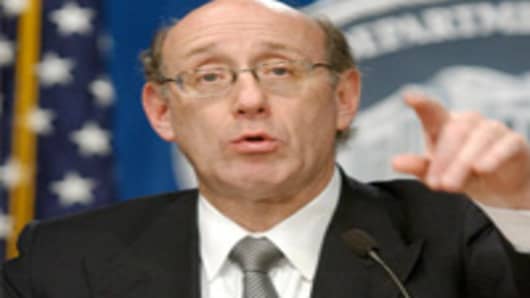US "pay czar" Ken Feinberg told CNBC Friday that he is “dubious” when Wall Street management claims that a “brake provision” in compensation contracts will put their firms at a competitive disadvantage.
“I’ve heard that argument from Goldman Sachs , JP Morgan ,” said Feinberg, the Obama administration's special master for compensation.
“I’m dubious that if a company, like Goldman, inserts a brake provision in its compensation packages that that will result in a loss of senior leadership."
Feinberg has proposed a voluntary brake provision in the event of a financial crisis, which would allow the boards of companies to reverse their contractual obligations to pay out such extras as bonuses and golden parachutes.
The administrator has recommended the measure to avoid a repeat of the situation in 2008 and 2009 when 17 firms, mostly banks, paid out some $1.6 billion in such extras as bonuses and retention awards, even though they had accepted billions of TARP money, funded by US taxpayers.
Eleven of the companies have repaid the bailout money, said Feinberg.
Among those 17 firms are Citi , Goldman Sachs, CIT , American Express , Capital One and Bank of America .
Feinberg called those payments “ill-advised” and “inappropriate,” but not illegal and said he would not ask that the money be returned because he has no jurisdiction to collect it. Also, Feinberg's office was established in February 2009 and had direct impact on pay only at seven companies.
Feinberg said he’d like all the 419 firms that accepted TARP money to voluntarily institute a brake provision.
Most of the banks remained largely silent Friday when asked about Feinberg's recommendation, although some said they were taking it under advisement.
Feinberg, who also administered payments to survivors of the 9/11 terrorists attacks in 2001, is stepping down as master of compensation and will next tackle full-time distributing funds to those impacted by the BP oil spill in the Gulf of Mexico.


